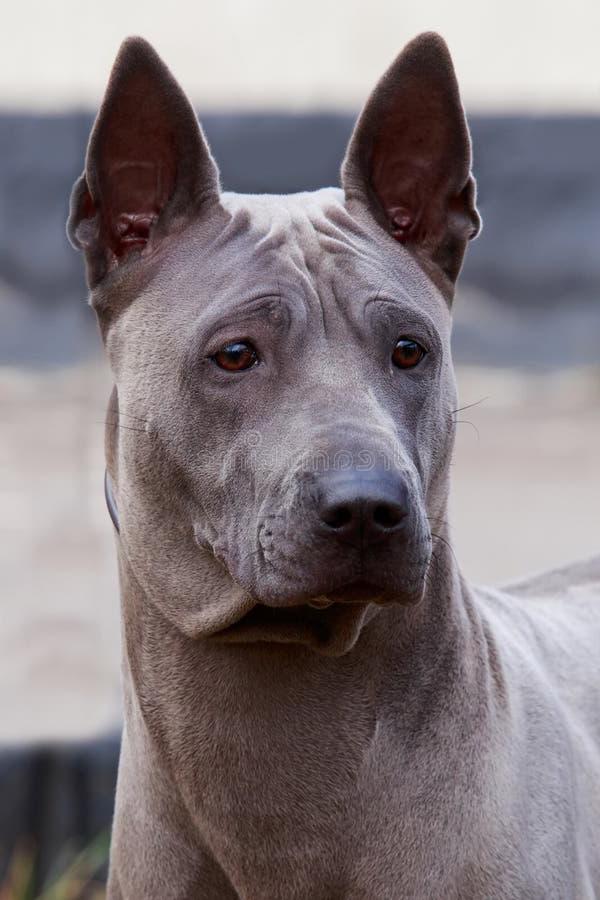- Breed Category: Primitive breed
- Country of Origin: Thailand
- Average Height: Males 56-61 cm, Females 51-56 cm
- Average Weight: Males 23-34 kg, Females 16-25 kg
- Average Life Span: 12-15 years
- Grooming Requirements: Low, occasional brushing
- Exercise Requirements: High, needs daily exercise
- Coat Type: Short and smooth
- Coat Color Variations: Red, black, blue, fawn
- Shedding Level: Low
- Ear Type: Erect and triangular
- Tail Type: Tapered and slightly curved
- Temperament: Loyal, independent, protective
- Intelligence Level: High
- Barking Tendency: Moderate
- Compatibility with Children: Good with proper socialisation
- Compatibility with Other Pets: Varies, needs socialisation
- Training Ease: Moderate, requires experienced handler
- Common Health Issues: Dermoid sinus, hip dysplasia
- Dietary Needs: High-quality diet, protein-rich
- Energy Level: High
- Drooling Tendency: Low
- Sensitivity to Weather: Sensitive to cold
- Overall Maintenance Level: Moderate
- Original Purpose: Hunting and guarding
- Year of Recognition by Kennel Clubs: 1997 by FCI
- Apartment Friendly: Not ideal, needs space
- Best Suited For: Active families, experienced owners
- Cost of Ownership: Moderate to high
- Unique Traits: Distinctive ridge on back
Ever heard of the Thai Ridgeback? This unique breed is not just a pretty face; it’s a fascinating mix of history, character, and care needs. Known for its distinctive ridge of hair along its back, the Thai Ridgeback is a breed that stands out in a crowd.
Originating from Thailand, this breed has been around for centuries, primarily used for hunting and guarding. Its history is as rich as its appearance, with roots deeply embedded in Thai culture. The Thai Ridgeback is a natural athlete, known for its agility and strength, making it a great companion for active families.
In this article, we’ll dive into what makes this breed special, from its historical background to its unique characteristics and care requirements.
Early Development and Cultural Significance of the Thai Ridgeback
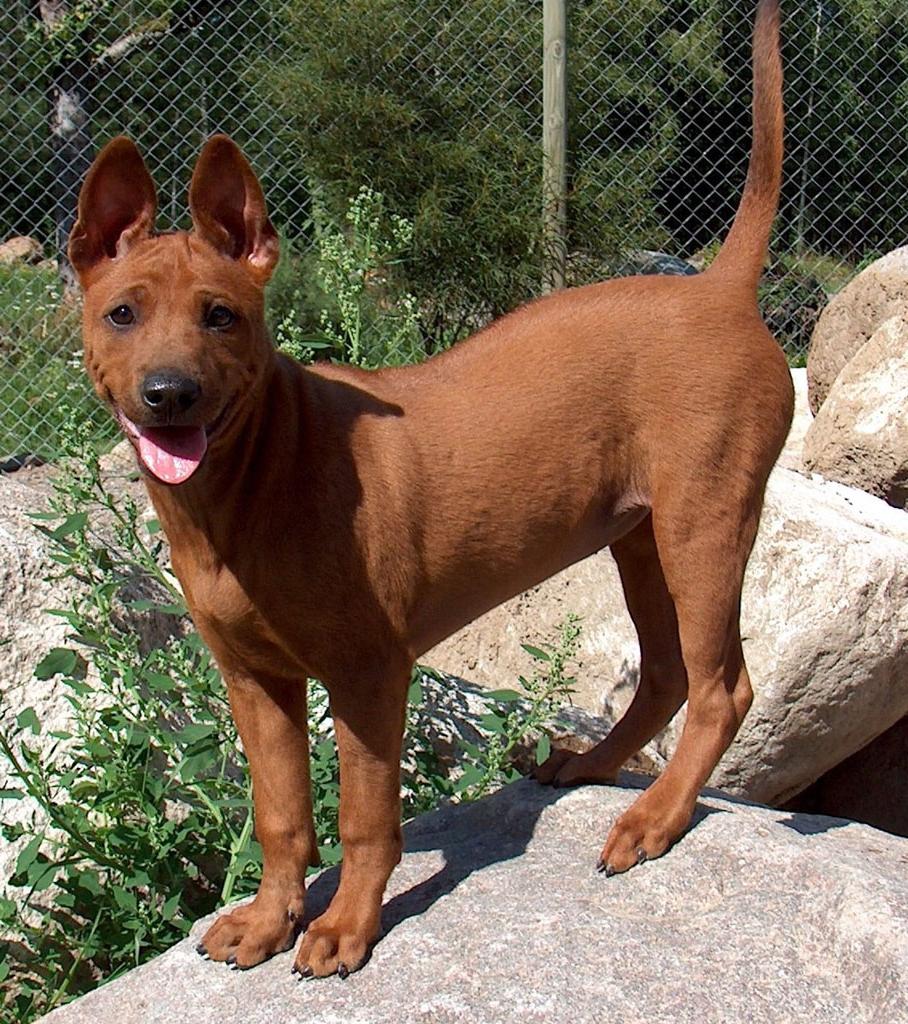
Early Development of the Breed
The Thai Ridgeback has a history that stretches back hundreds of years. Originally from eastern Thailand, this breed was developed in isolation, which helped preserve its unique characteristics. It was primarily used by villagers for hunting and as a guard dog, thanks to its keen senses and protective nature. The breed’s development was influenced by the need for a versatile and resilient dog that could thrive in the rural landscapes of Thailand.
Role in Thai Culture and History
In Thai culture, the Ridgeback is more than just a working dog. It holds a special place as a symbol of loyalty and protection. Historically, these dogs were companions to farmers and traders, providing security and companionship on long journeys. Their presence in Thai folklore and art highlights their importance in the cultural tapestry of the region.
Key Historical Figures and Regions
The breed’s development is closely tied to the eastern provinces of Thailand, particularly in regions like Chanthaburi and Trat. These areas were instrumental in maintaining the breed’s purity and characteristics. While specific historical figures are not well-documented, the collective efforts of local communities ensured the breed’s survival and prominence.
Physical Characteristics
The Thai Ridgeback is easily recognisable by its sleek, muscular build and the distinctive ridge of hair running along its back. This ridge, formed by hair growing in the opposite direction to the rest of the coat, is a hallmark of the breed. They typically have a short, smooth coat that comes in a variety of colours, including red, black, blue, and fawn. Their expressive eyes and alert ears give them an intelligent and attentive appearance, making them both striking and endearing.
Unique Physical Traits
When it comes to physical prowess, the Thai Ridgeback is a standout. This breed boasts an athletic build that’s both powerful and agile, making it a natural athlete. Their strong, muscular frame is complemented by a graceful gait, allowing them to move with ease and speed. This agility is not just for show; it’s a testament to their history as hunters and protectors. Whether they’re sprinting across a field or navigating a tricky trail, their physical capabilities are impressive.
Temperament and Behaviour
Thai Ridgebacks are known for their independent and intelligent nature. They’re not the type to follow commands blindly; instead, they think for themselves, which can be both a challenge and a delight for owners. This breed is fiercely loyal to its family, often forming strong bonds with those it trusts. While they can be reserved with strangers, they’re affectionate and protective with their loved ones. Their alertness and keen senses make them excellent watchdogs, always ready to alert their family to anything unusual.
Personality Traits and Suitability
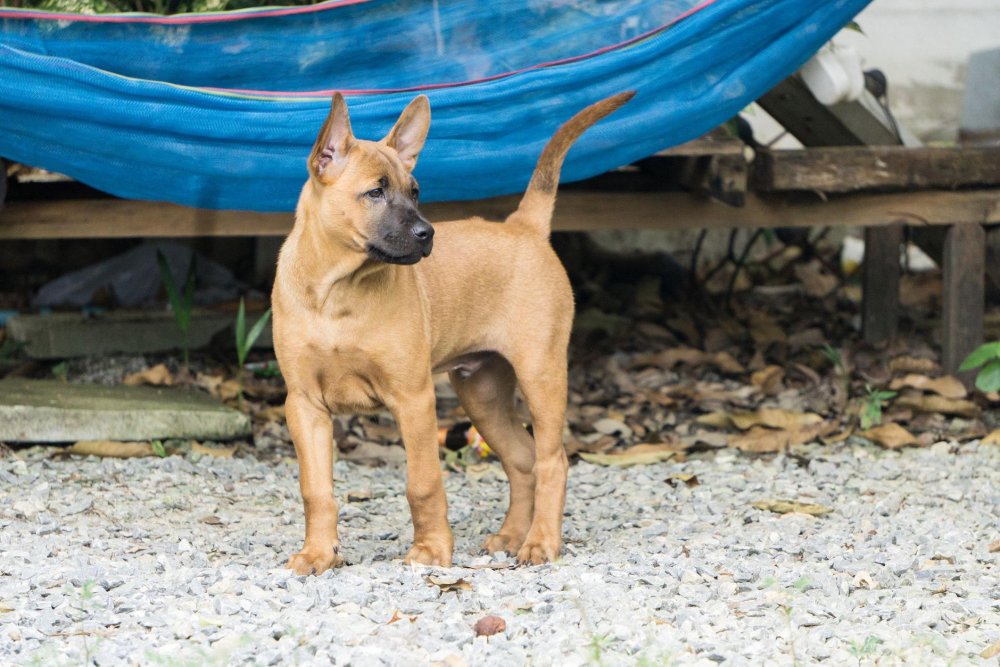
Typical Personality Traits
The Thai Ridgeback is a breed that thrives on independence and intelligence. They’re not your average lap dog; they like to think for themselves and often have a mind of their own. This makes them both intriguing and sometimes a bit of a handful. Their loyalty is unmatched, forming deep bonds with their family members. While they might be a bit aloof with strangers, their protective nature shines through, making them excellent companions.
Suitability as a Family Pet and Guard Dog
As a family pet, the Thai Ridgeback can be a wonderful addition, especially for those who appreciate a dog with a strong personality. Their natural guarding instincts make them vigilant protectors of the home. However, they do best in households where they can get plenty of exercise and mental stimulation. They’re not the best fit for first-time dog owners due to their independent streak.
Interaction with Children and Other Animals
When it comes to kids, Thai Ridgebacks can be great playmates, but early socialisation is key. They need to learn how to interact with children and other animals from a young age. With proper training, they can coexist peacefully with other pets, though their hunting instincts might kick in with smaller animals.
Training and Exercise Needs
Training a Thai Ridgeback requires patience and consistency. They’re smart, but their independent nature means they might not always be eager to please. Positive reinforcement works best. Regular exercise is crucial to keep them happy and healthy. They love activities that challenge both their body and mind, so mix up their routine with walks, runs, and interactive games.
Training, Exercise, and Health of the Thai Ridgeback

Importance of Early Training and Socialisation
Getting a Thai Ridgeback off to a good start with early training and socialisation is crucial. These dogs are naturally independent and intelligent, so introducing them to various environments, people, and other animals early on helps them grow into well-rounded adults. It’s all about setting the foundation for a confident and adaptable dog.
Recommended Training Techniques
When it comes to training, patience and consistency are your best friends. Thai Ridgebacks respond well to positive reinforcement techniques. Think treats, praise, and playtime as rewards. Avoid harsh methods; they’re not effective with this breed. Keep training sessions short and engaging to hold their interest.
Daily Exercise Requirements and Activities They Enjoy
These dogs are active and need regular exercise to stay happy. Daily walks, runs, and play sessions are a must. They thrive on activities that challenge both their body and mind. Try mixing up their routine with agility courses or interactive games to keep them engaged.
Health and Lifespan
Thai Ridgebacks are generally healthy dogs with a lifespan of around 12 to 15 years. Regular vet check-ups, a balanced diet, and plenty of exercise contribute to their well-being. Like any breed, they can be prone to certain health issues, so staying informed and proactive about their health is key.
Health and Care of the Thai Ridgeback

Common Health Issues
Thai Ridgebacks are generally robust, but like any breed, they have their share of health concerns. Hip dysplasia and dermoid sinus are two conditions to watch out for. Regular vet visits can help catch these issues early, ensuring your dog stays in top shape.
Average Lifespan and Health Tips
With proper care, Thai Ridgebacks can live between 12 to 15 years. To keep them healthy, provide a balanced diet, regular exercise, and mental stimulation. These dogs thrive on activity, so keeping them engaged is key to their longevity.
Preventative Care Recommendations
Preventative care is crucial. Regular vaccinations, flea and tick prevention, and dental care should be part of their routine. Annual vet check-ups are essential to monitor their overall health and catch any potential issues early.
Grooming and Maintenance
Grooming a Thai Ridgeback is relatively straightforward. Their short coat requires minimal maintenance, just a weekly brush to remove loose hair. Regular nail trimming, ear cleaning, and dental hygiene are also important to keep them looking and feeling their best.
Coat Care and Grooming for the Thai Ridgeback
Coat Care and Grooming Routines
The Thai Ridgeback’s short, smooth coat is a breeze to maintain. A weekly brush is usually enough to keep their coat looking sleek and to remove any loose hair. This not only keeps them looking sharp but also helps to distribute natural oils, keeping their skin healthy. Regular grooming sessions are a great opportunity to check for any skin issues or parasites.
Shedding and Seasonal Grooming Tips
While Thai Ridgebacks are not heavy shedders, they do experience some seasonal shedding. During these times, you might want to increase brushing to a couple of times a week. This helps manage the extra hair and keeps your home a bit tidier. A good quality brush or grooming mitt can make this task easier and more effective.
Diet and Nutrition
A balanced diet is crucial for the Thai Ridgeback’s health and vitality. High-quality dog food that meets their nutritional needs is essential. Look for options rich in protein to support their muscular build. Fresh water should always be available, and treats should be given in moderation to prevent weight gain. Consulting with a vet can help tailor a diet plan that suits your dog’s specific needs.
Nutritional Needs and Feeding for the Thai Ridgeback

Nutritional Needs for Optimal Health
Thai Ridgebacks thrive on a diet rich in high-quality protein to support their muscular build. Look for dog food that lists meat as the first ingredient. Omega-3 and Omega-6 fatty acids are also beneficial for maintaining their sleek coat and healthy skin. Avoid foods with excessive fillers like corn and soy, as these can lead to weight gain and other health issues.
Foods to Include and Avoid
Include lean meats, fish, and vegetables in their diet. These provide essential nutrients and help maintain their energy levels. Avoid processed foods and those high in artificial additives. Chocolate, grapes, and onions are toxic to dogs and should be kept out of reach.
Feeding Schedules and Portion Recommendations
Adult Thai Ridgebacks typically do well with two meals a day. Puppies may require more frequent feeding. Portion sizes depend on their age, weight, and activity level, so consult your vet for tailored advice. Always ensure fresh water is available.
Fun Facts and Trivia
Did you know the Thai Ridgeback is one of only three breeds with a natural ridge of hair along its back? This unique feature is shared with the Rhodesian Ridgeback and the Phu Quoc Ridgeback. Their independent nature and keen intelligence make them fascinating companions.
Interesting Tidbits and Famous Thai Ridgebacks
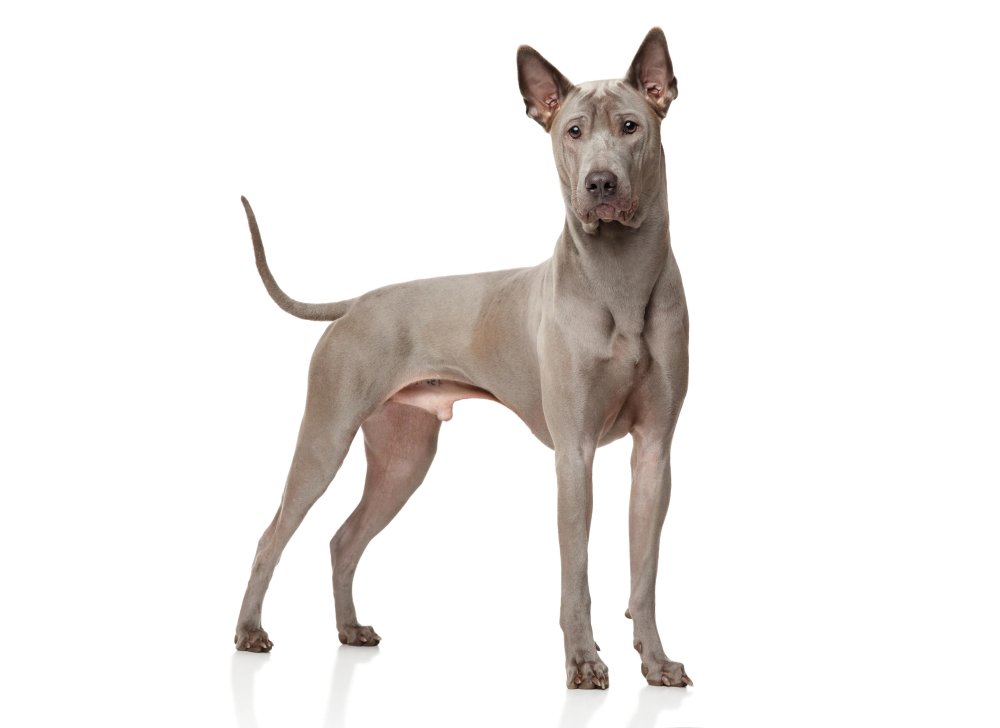
Interesting Tidbits about the Breed
The Thai Ridgeback is a breed full of surprises. For starters, they’re one of only three breeds in the world with a natural ridge of hair along their back. This unique feature is not just for show; it’s a testament to their ancient lineage. These dogs are also known for their remarkable jumping ability, often clearing fences with ease. Their history as hunters and protectors has endowed them with a keen sense of awareness and agility.
Another interesting fact is their vocal nature. Thai Ridgebacks are known to communicate with a range of sounds, from barks to howls, making them quite the conversationalists. This trait, combined with their intelligence, means they’re always ready to alert you to anything unusual.
Famous Thai Ridgebacks in Media or History
While Thai Ridgebacks may not be as famous as some other breeds in movies or TV shows, they have made their mark in history. In Thailand, they are celebrated as national treasures, often appearing in local folklore and art. Their role as loyal companions to farmers and traders has been immortalised in stories passed down through generations. Though not widely recognised in Western media, their unique appearance and character have earned them a dedicated following among dog enthusiasts worldwide.
Final Thoughts
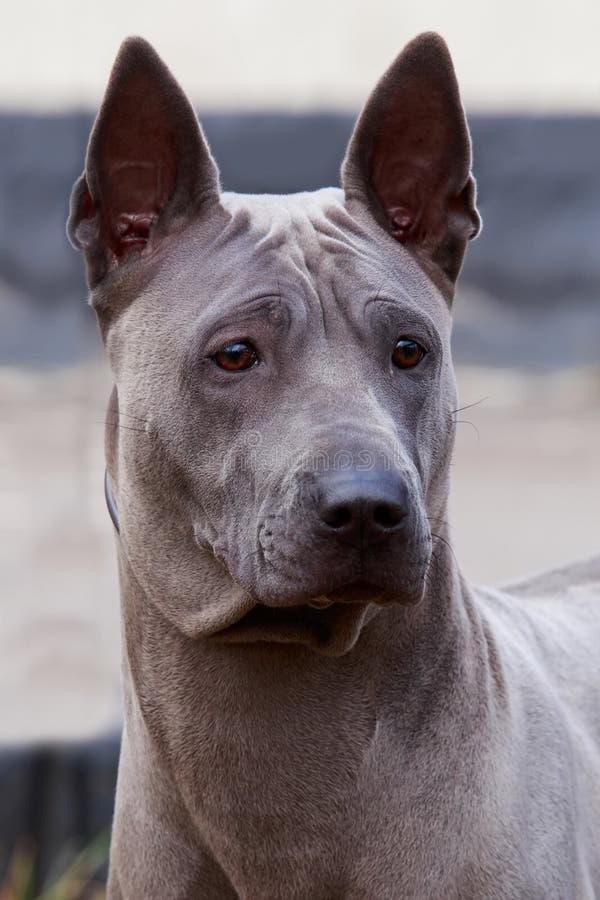
The Thai Ridgeback is a unique and captivating breed. Its blend of independence and loyalty makes it a remarkable companion. While they require experienced handling and ample exercise, the rewards of owning such a devoted and intelligent dog are immense. Embracing the Thai Ridgeback means welcoming a piece of rich history and culture into your home. For those ready to meet the challenge, this breed offers a lifetime of companionship and protection.
